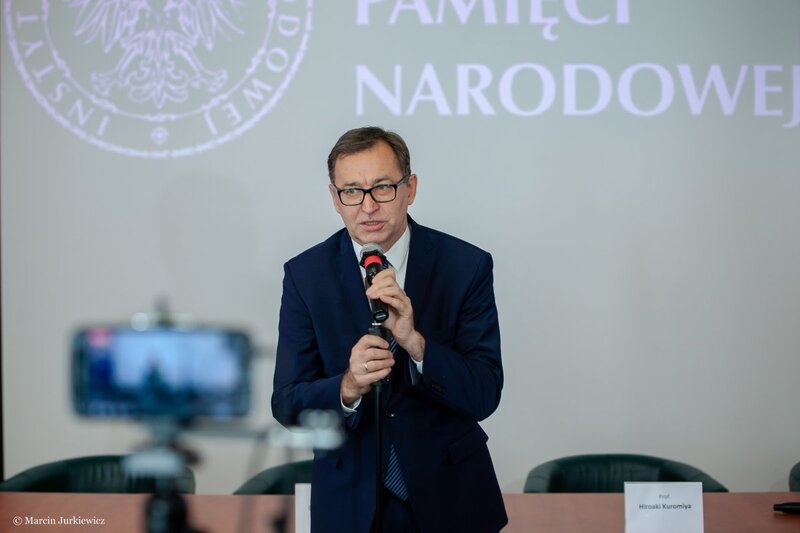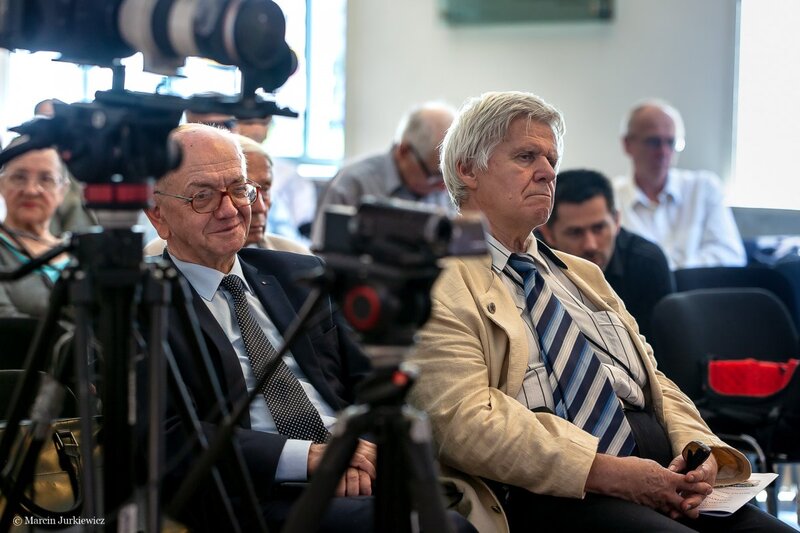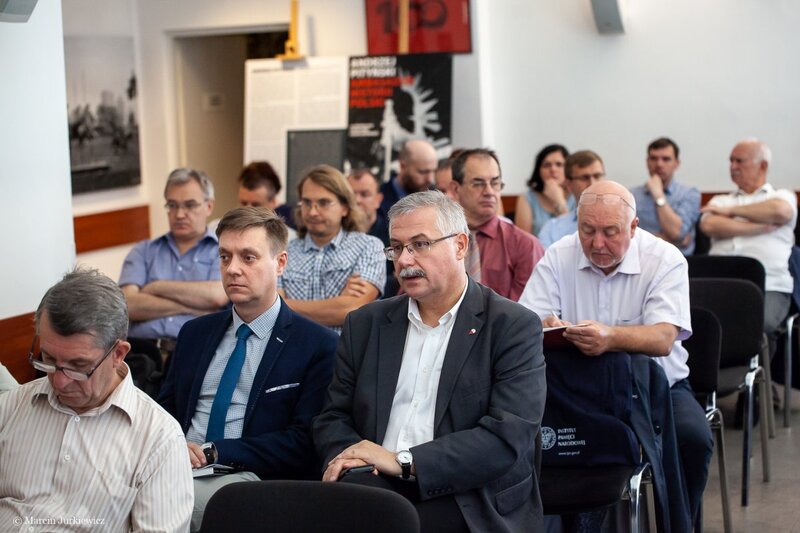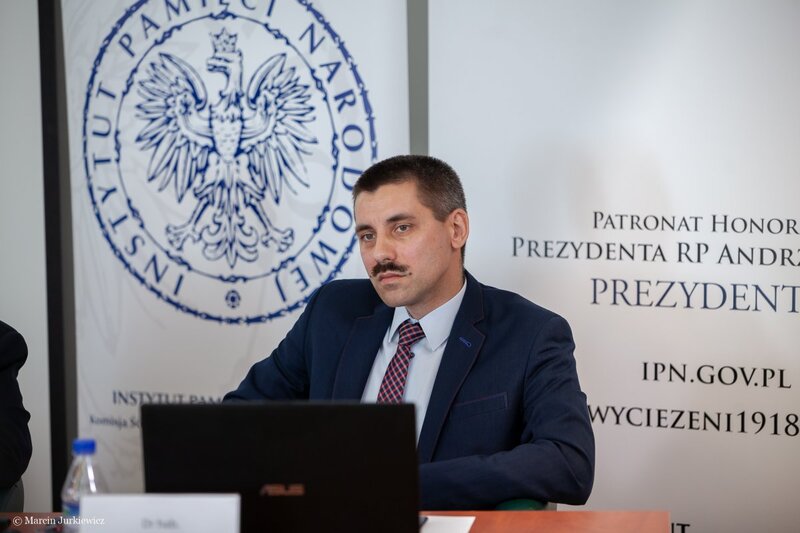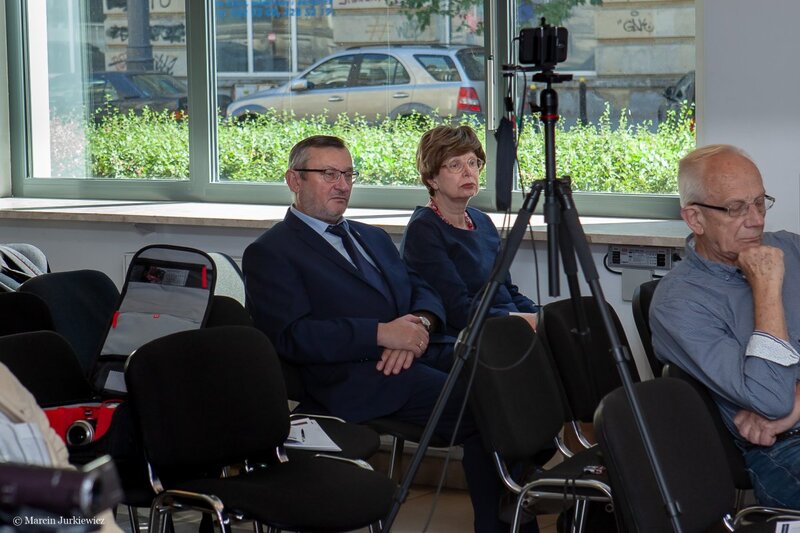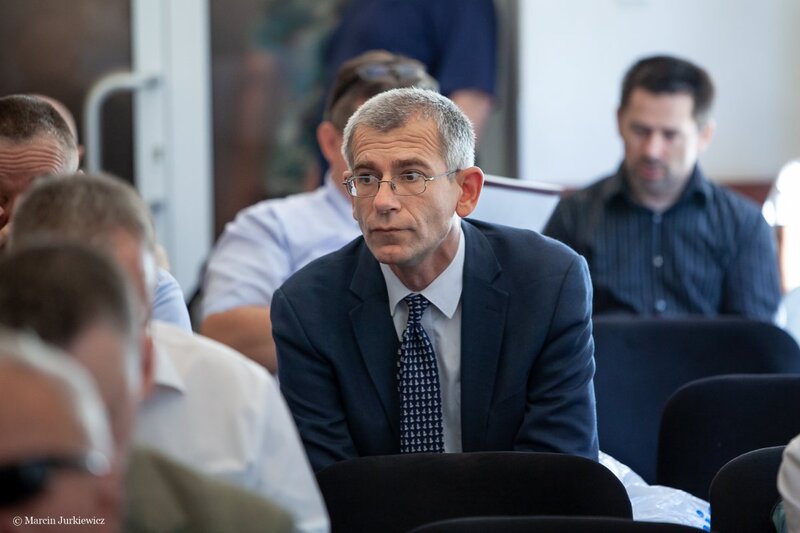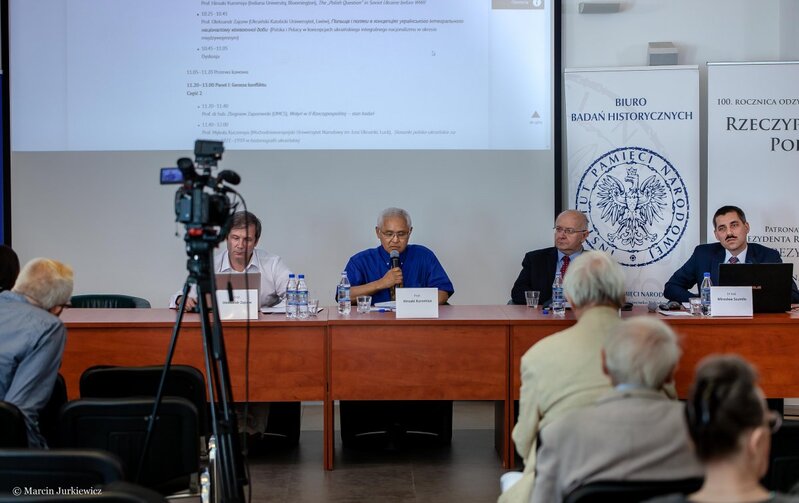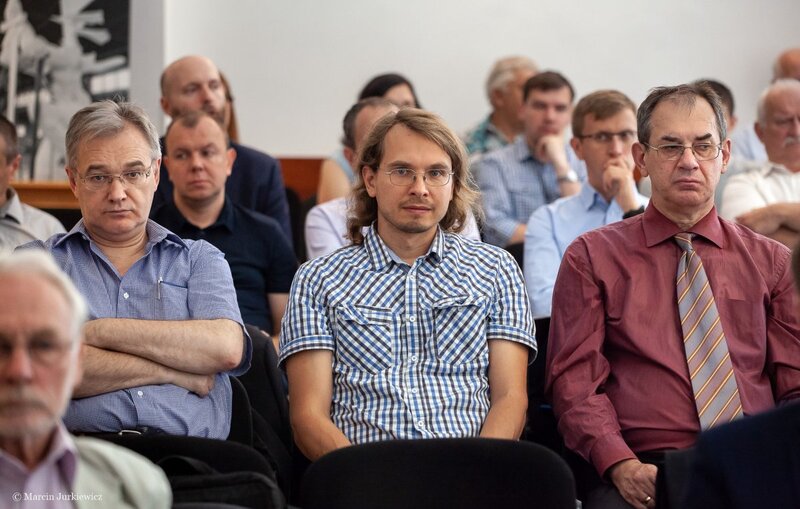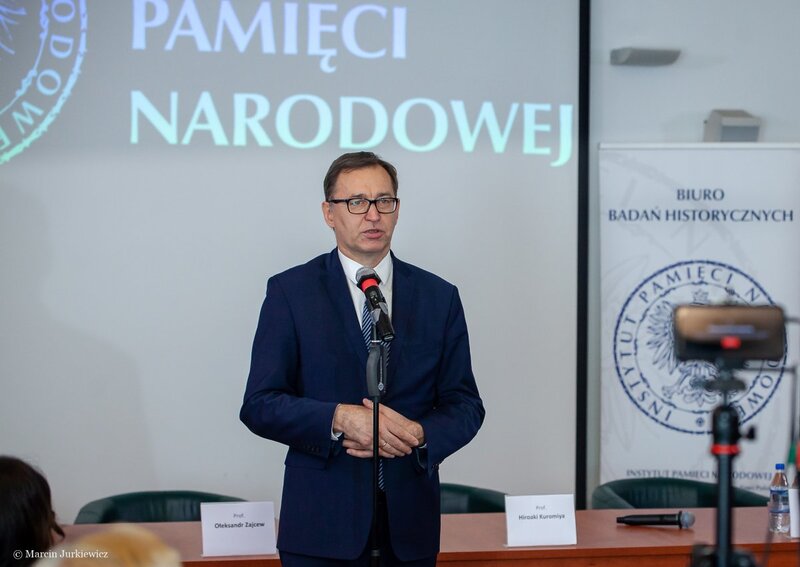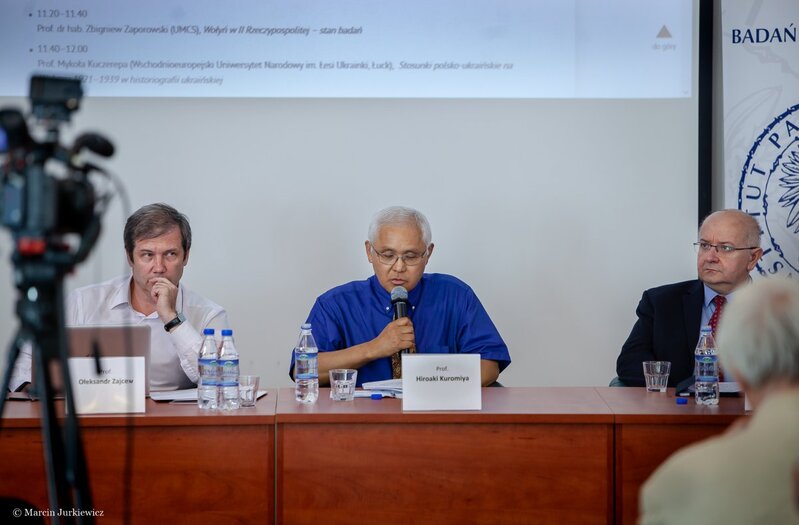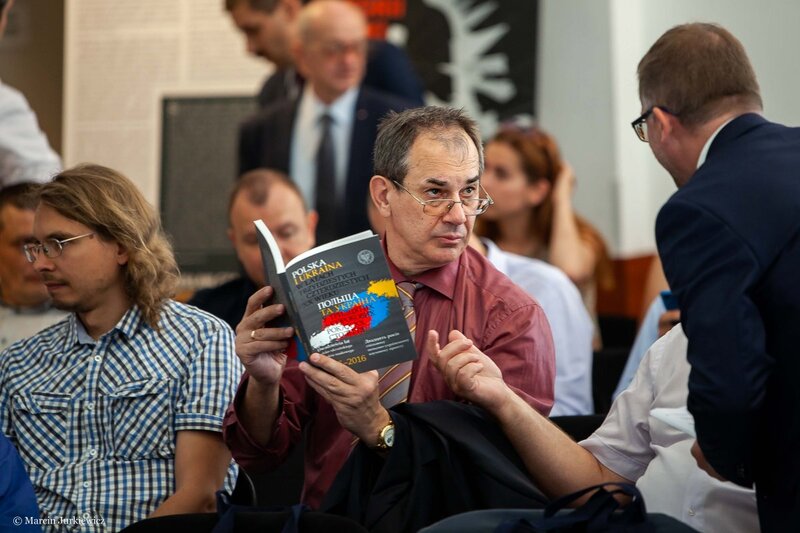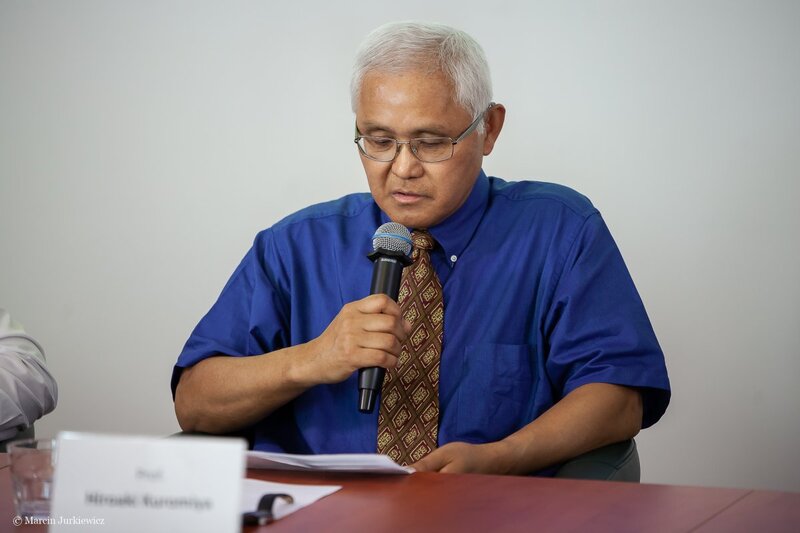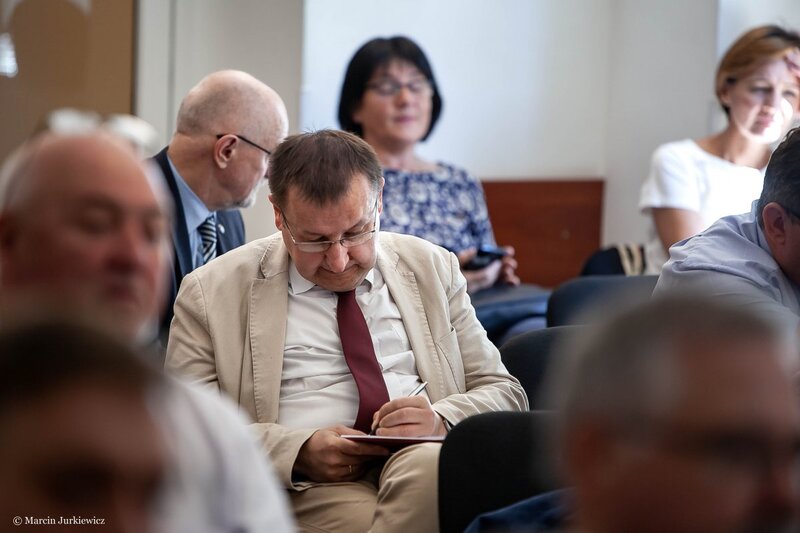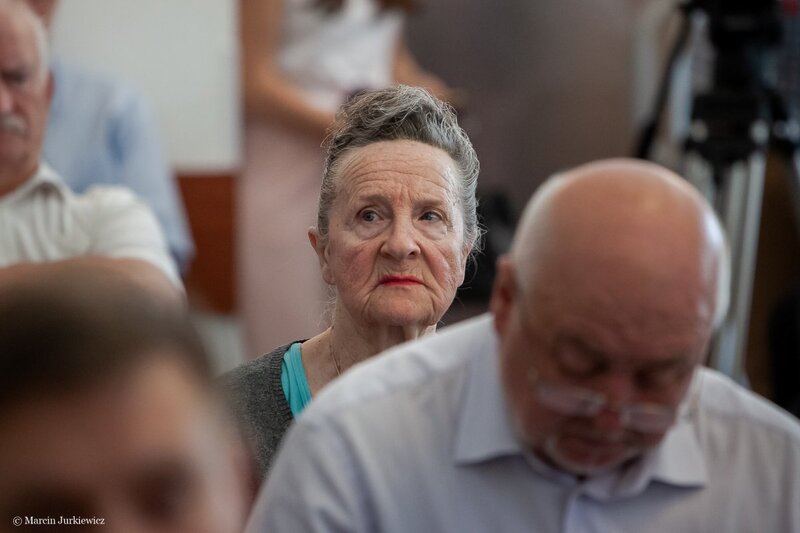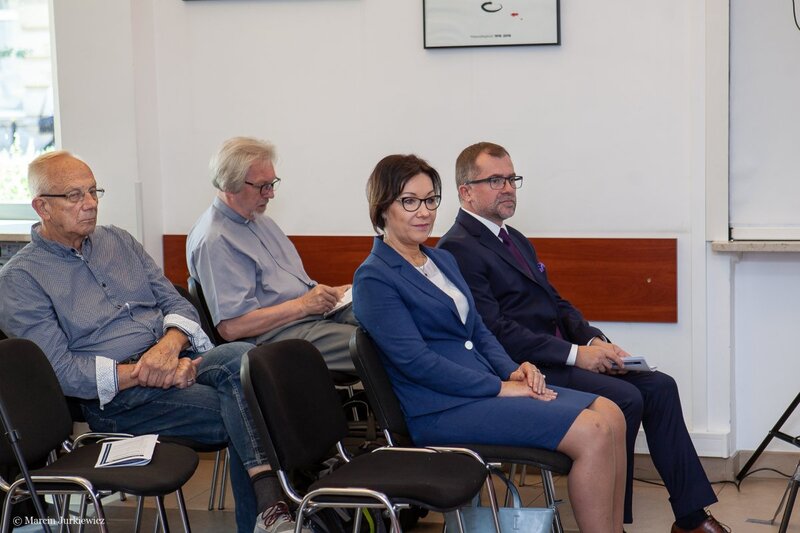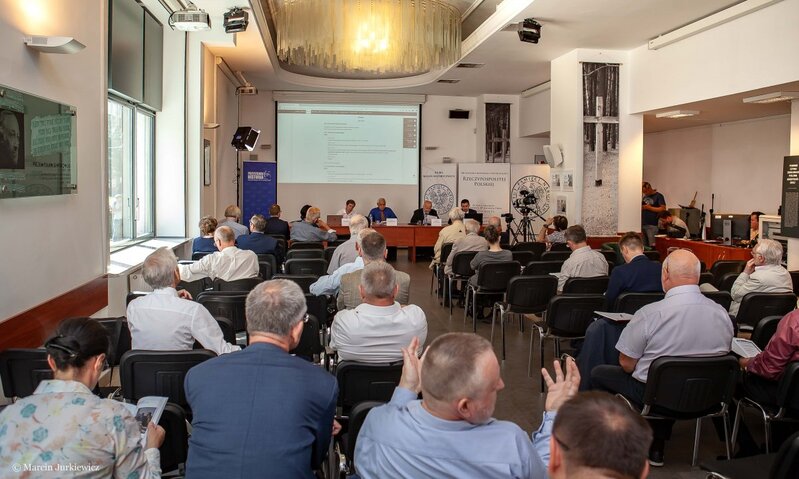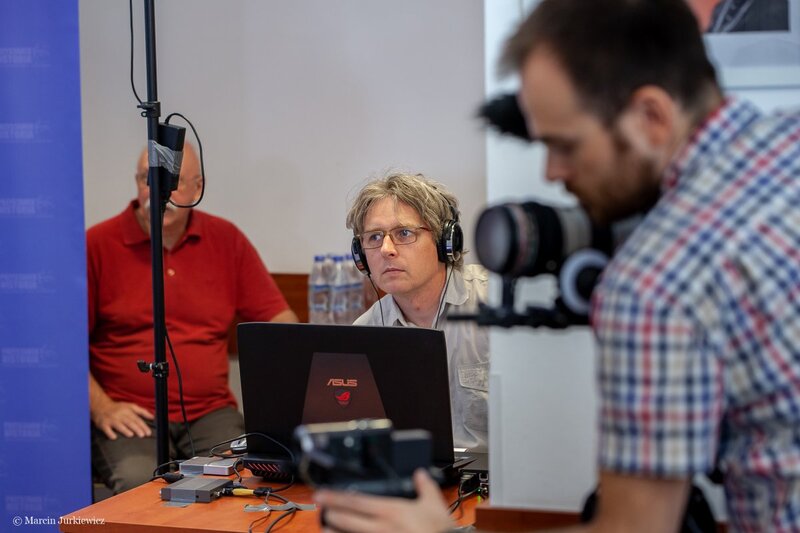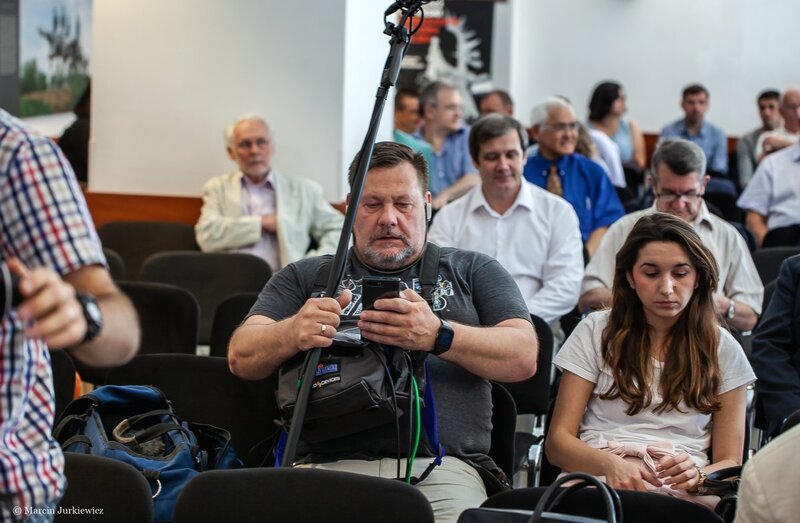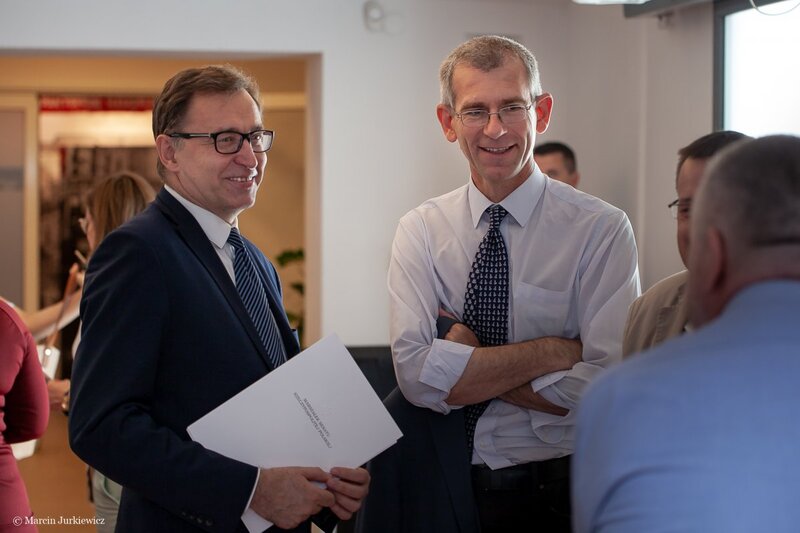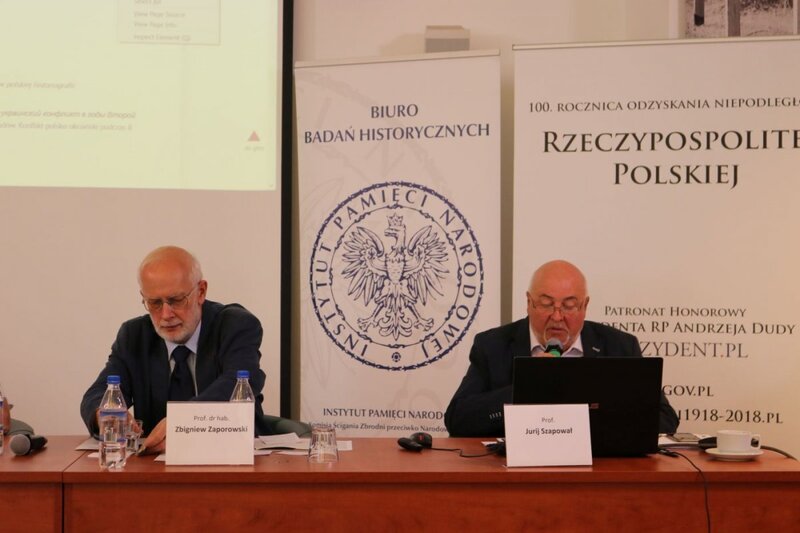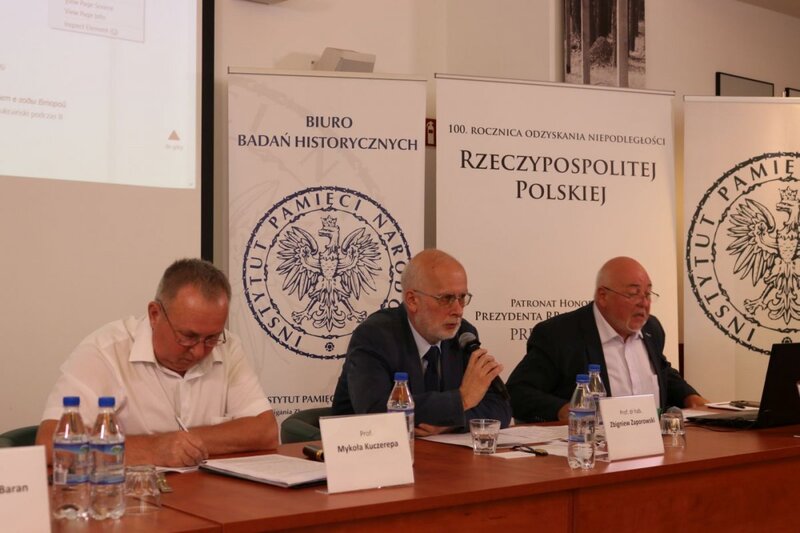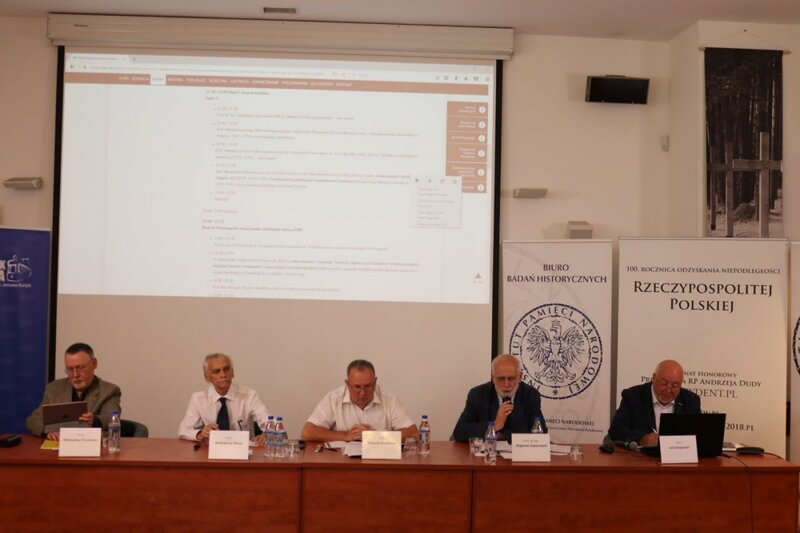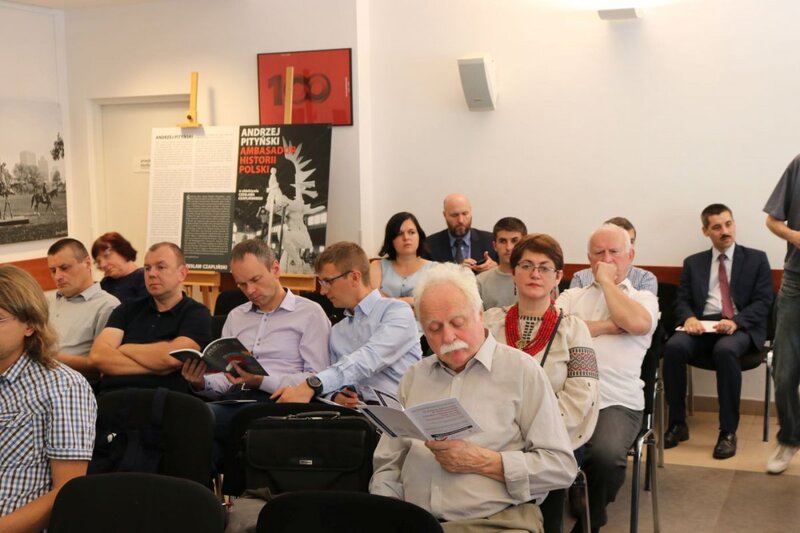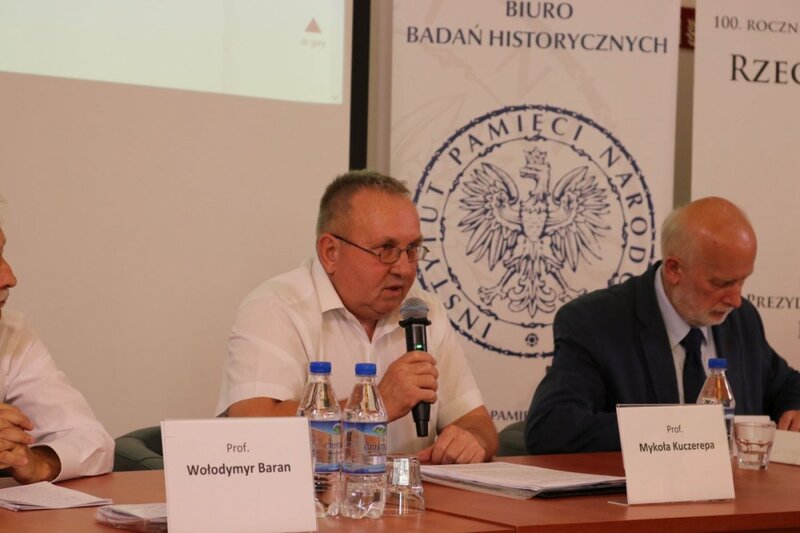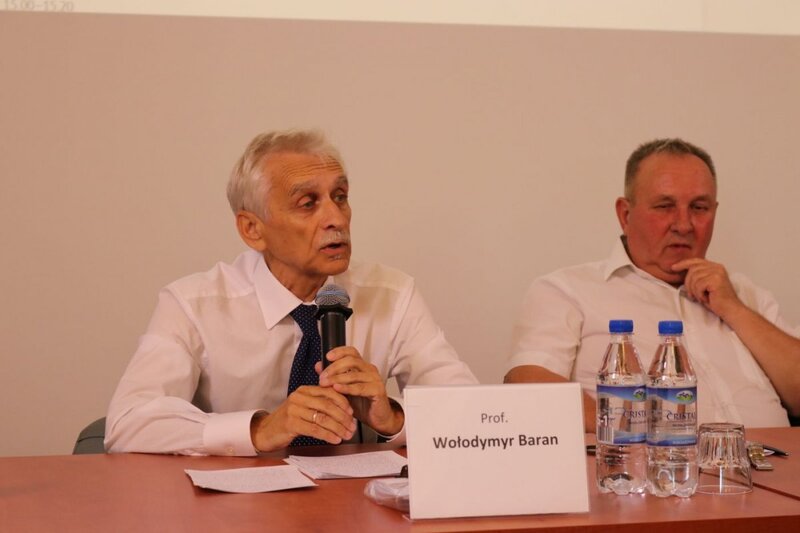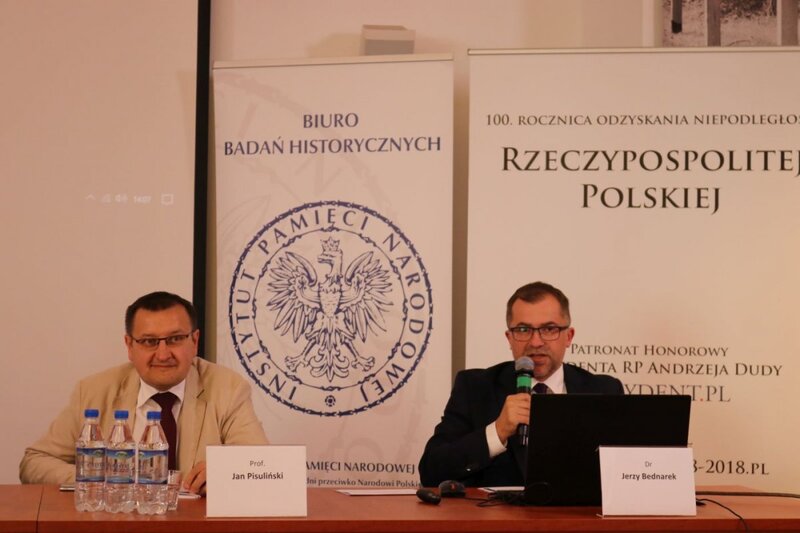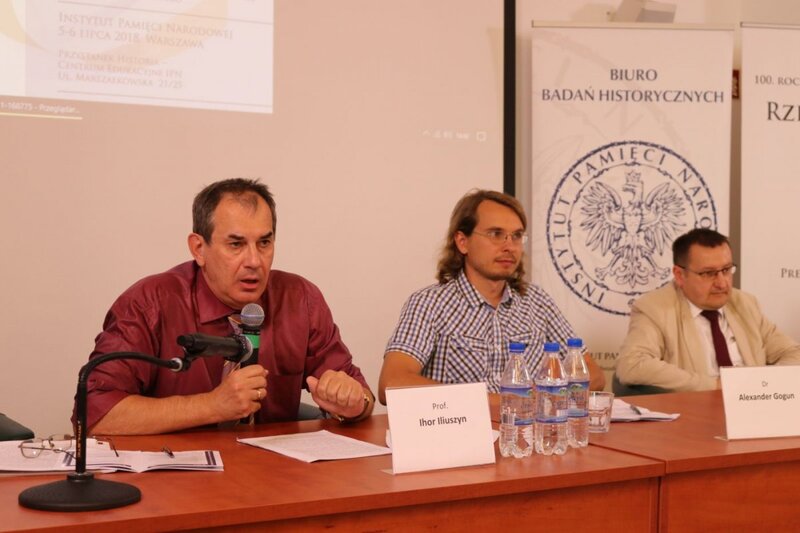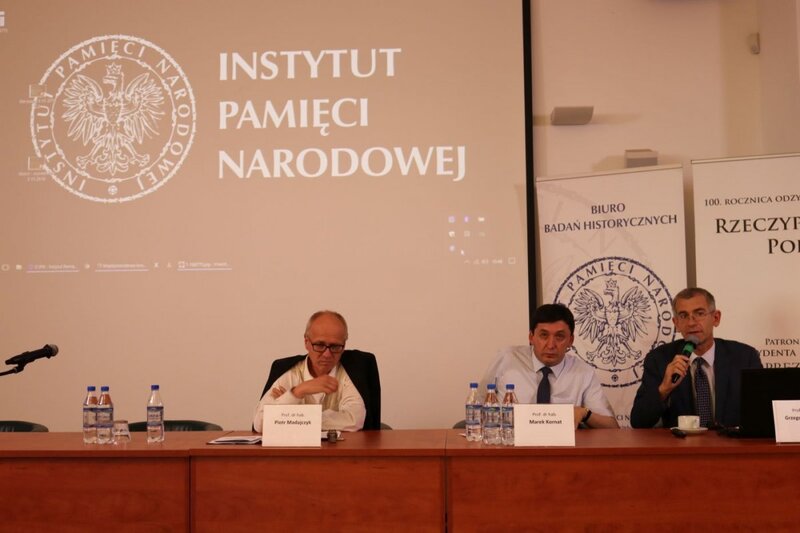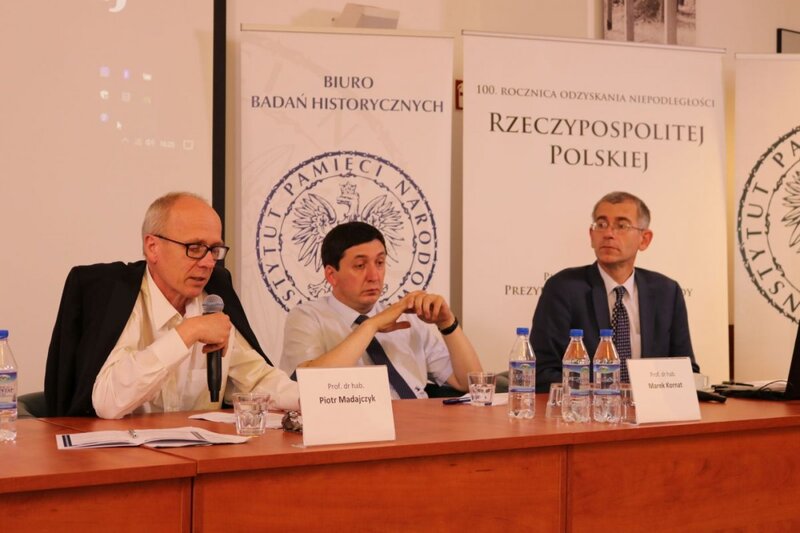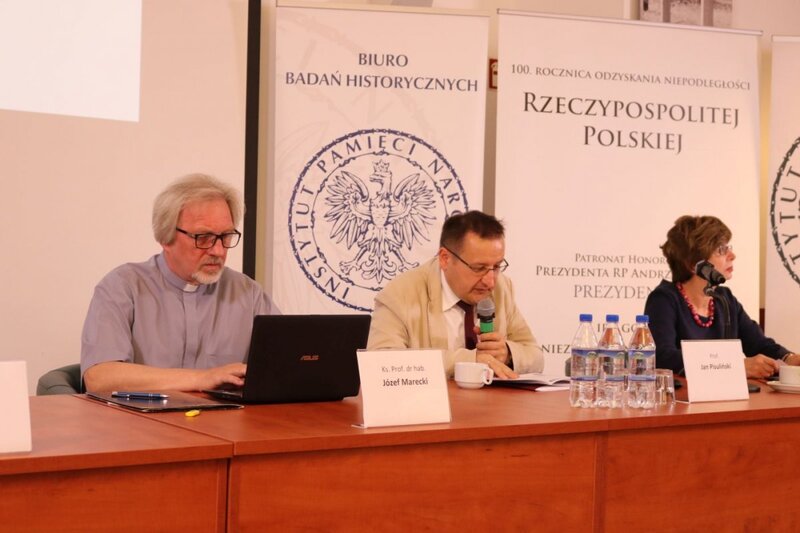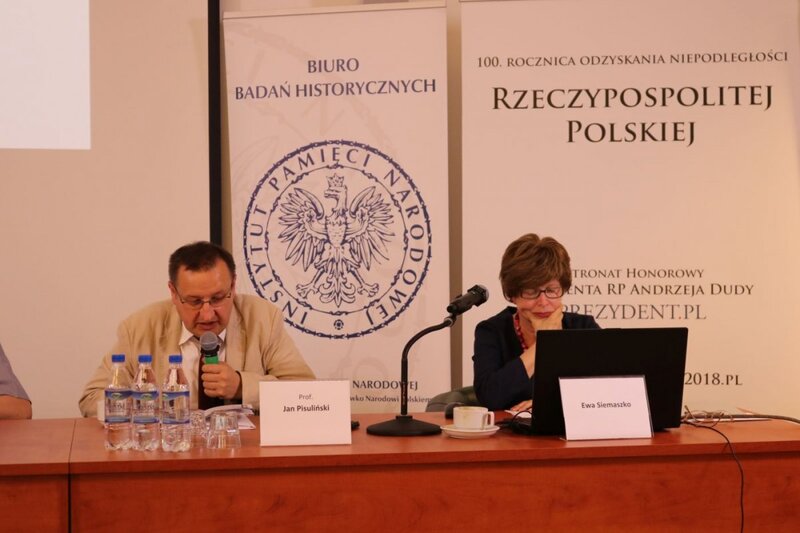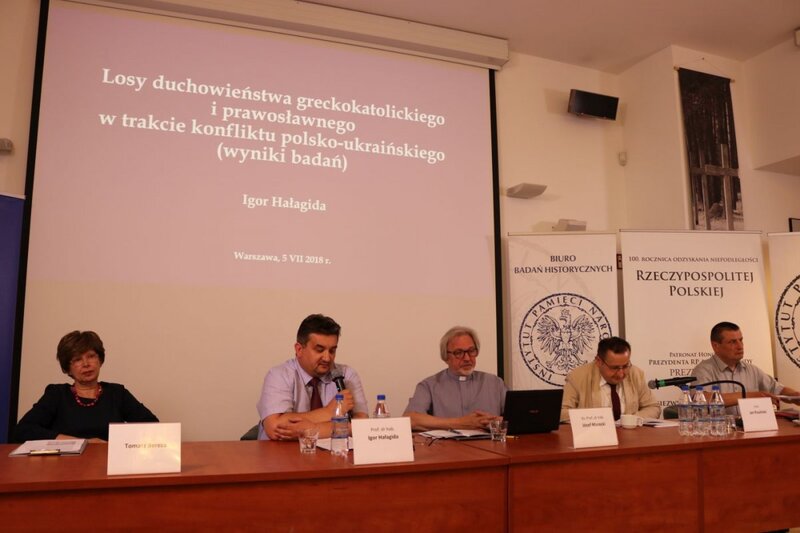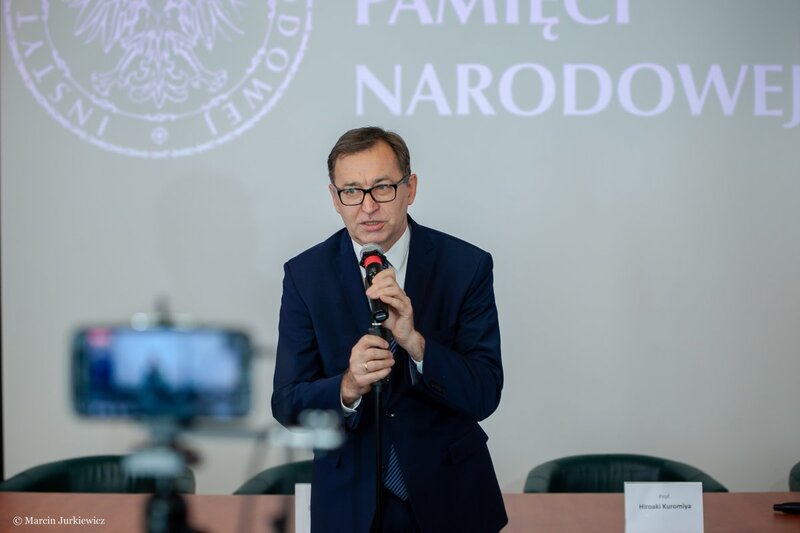During the official opening of the conference, the President of the Institute of National Remembrance, Dr Jarosław Szarek, recalled:
“The 20th century began for us with the Great War, and our independence derives from this war. At its beginning Polish and Ukrainian blood was shed in Lviv, in Przemyśl and on many other fronts. (...) The need for truth is the foundation of good relationships between nations. I hope that this conference will become a step to achieve it”.
The event was held under the patronage of the Speaker of the Polish Senate Stanisław Karczewski. The letter on his behalf was read out by Małgorzata Kopiczko, MP.
“The events of the first half of the twentieth century, especially from the period of World War II, were most painfully recorded in the historical memory of Poles and Ukrainians. Mutual relations from that period are certainly the most tragic and the most difficult to understand chapter in the recent history of both societies and nations. This was confirmed, among others, in the now historic declarations of the Presidents of Poland and Ukraine, resolutions of the Polish Sejm and Senate and the Verkhovna Rada of Ukraine,” Stanisław Karczewski wrote in the letter.
On the first day of the conference, the invited scientists focused on the topics related to ideological concepts of Ukrainian integral nationalism, the genesis of the Polish-Ukrainian conflict, and the fate of the clergy of various denominations in its course. New findings and research perspectives, as well as a review of the state of research regarding the Polish-Ukrainian conflict in terms of Polish, Ukrainian, Russian and German historiography, were discussed. Among others, current results of research on the factual number of victims of the crimes of Ukrainian nationalists were presented, attention to the importance of terminology concerning genocide in terms of international law as well as the totalitarian features of the OUN-UPA ideology being drawn.
